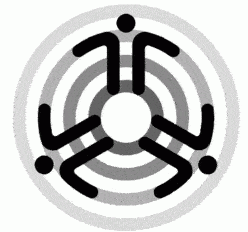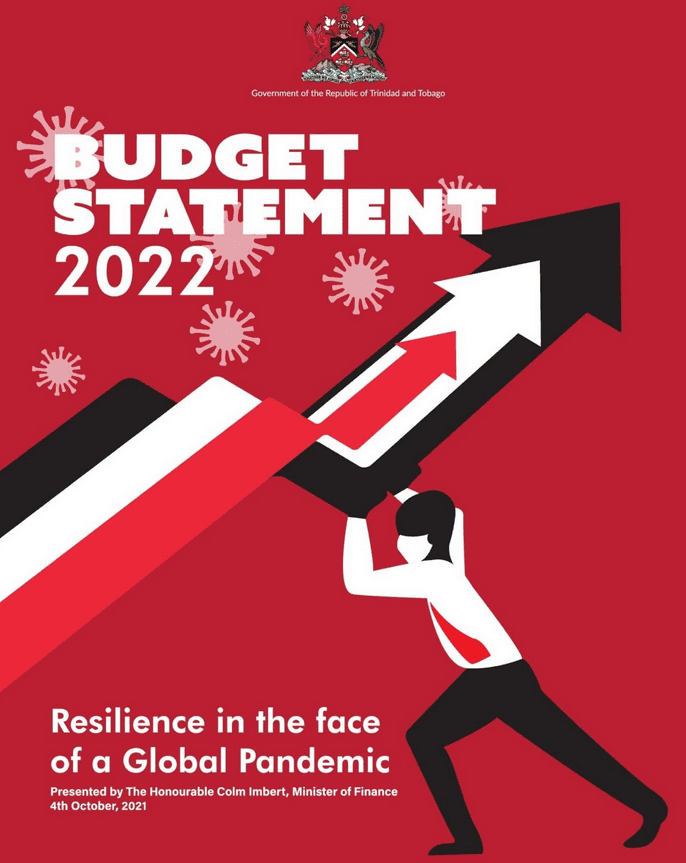The Minister of Finance, Honourable Colm Imbert presented the 2022 Budget Statement in the Trinidad and Tobago Parliament on October 4 2021.
The 2022 Budget Statement and related documents can be downloaded at
https://www.finance.gov.tt/2021/09/28/national-budget-2022/
This post will focus on the ICT related aspects of the 2022 Budget Statement.
Pages 60-61 under “Trinidad and Tobago International Financial Centre” :
“…it is well-established that a country’s level of financial technology (fintech) development is highly related to improvements in financial inclusion in particular, in emerging economies. As fintech solutions develop in a country, progressively more people will have access to essential financial services like bank accounts and the ability to save and access credit. The Government has made significant policy in-roads related to the development and enablement of the sector.
We have introduced the E-Money Issuer (EMI) Order which came into effect on August 4, 2020. This allows for the participation of E-Money Issuers and Fintechs to provide services alongside the banking sector as long as regulatory and operational requirements are met. In September 2021 we also implemented guidance for the banking sector to allow for relaxed and simplified know-your-customer (KYC) rules to make opening bank accounts easier for individuals whom traditional requirements might otherwise exclude. A risk-based approach has been promulgated.”
As part of the amended mandate of the International Financial Centre, the agency will directly support the Ministry of Finance and other stakeholders in executing the initiatives in progressing the Fintech agenda through the development of a national financial inclusion strategy and action plan to pursue a single approach to financial inclusion aimed at increasing participation within the formal economy by:
* accelerating digitalization of payments across the Government through the enablement of multiple electronic funds transfer (EFT) methods across receivers of revenue within the public sector;
* facilitating investment opportunities from international Fintechs focused on developing local capabilities for export potential through the development of a Fintech Hub. This hub is envisaged as the major means through which Trinidad and Tobago will provide greater opportunities for Fintech start-ups and established players to develop and scale their operations. This Hub will help to significantly increase the number of entrepreneurs who successfully transition from start-up to export-ready Fintech and Fintech-enabled services and products, thereby improving business sustainability and overall economic growth contribution from the export of these services.”
From Page 62 – under “Digital Transformation”
“Madam Speaker, we had to adapt as many others did in the global economy to new ways of working and doing business in the global response to the Covid-19 pandemic. This process of change heralded an
accelerated adoption of digital technologies to remain relevant. Business models began to make greater use of electronic transactions. In fact, Madam Speaker, many people now prefer electronic transactions.Madam Speaker, it became very clear that digital transformation is synonymous with convenience, speed and ease of doing business. We acknowledge nevertheless that the pandemic and the closure of physical
schools have impacted our children’s physical interactions, social development and mental and emotional well-being. We wish to commend our teachers who have embraced the challenge to transition to new
classroom methodologies, in particular online teaching. Many of our teachers serve the dual role of parent and educator and online education is here to stay.
Madam Speaker, digital transformation drives a two-fold process: it stimulates more competitive business and facilitates the emergence of the digital sector. We must now become a supplier of digital goods and services with such goods and services made in Trinidad and Tobago for Trinidad and Tobago. We must transition from being a consumer of digital products manufactured in other countries. Simultaneously, our businesses must digitize; they must have online presences that is, they must have a digital footprint, online marketplace and digitally-enabled value chains. They will need to improve their efficiencies and effectiveness as a condition for competing in the current global marketplace.
This is an opportunity to have a global market rather than a domestic market. Leaders in digital economies are countries that have made investments in digital infrastructure and talent and have a thriving eCommerce environment. We have the raw, yet untapped talent and therefore the potential to transform ourselves into a prominent digital economy. A small nation can become a leader; it only takes one digital product or service to create the momentum for the shift.
Madam Speaker, we have been implementing a range of initiatives aimed at improving the efficiency and effectiveness of the Government. We are witnessing a positive impact on the population and economy. The deepening and widening of the digital transformation process will continue to generate economies of scale. The e-state apparatus is demonstrating value for money. It represents reduced overall expenditure, while at the same time facilitates improved productivity and competitiveness nationally as citizens and businesses take advantage of the wide range of our e-services.
Madam Speaker, Information and Communications Technology (ICT) is a public good as it serves to reduce aggressively the digital divide. We are ensuring that our citizens enjoy robust, high quality, affordable internet access and have devices for connecting to the internet for work or play. We are providing our citizens with the skills and with access to the required support to use the technology online competently, safely, responsibly and most productively.Madam Speaker, we will continue to expand our suite of technological
products in creating a digital economy:
* TT WiFi: will continue to provide free broadband access in highly populated and frequented areas such as transport hubs, hospital waiting rooms, libraries and schools;
* at present roll-out of TT-WIFI is live at 10 transport hubs and sixteen libraries. The initiative will continue in 2022 driven by the Telecommunications Services of Trinidad and Tobago (TSTT). This company, in collaboration with Internet Service Providers (ISPs), will roll out additional TT-WIFI sites at all transport hubs, all libraries, all schools and at all health sites; and* free Wi-Fi is facilitating our evolution into a smart society and in particular our requirements for personal security. We will partner with local developers to create Apps to be provided free of charge to our citizens. This facility in tandem with the free Wi-Fi service will strengthen the security environment allowing our citizens to go about their business safely and securely.
* ICT Access Centres are already benefitting our citizens in digitally underserved communities. These centres are providing our citizens with computers, internet access, training, printing and scanning services and we plan to expand this facility. In 2022, the number of ICT Access Centres is being increased from 6 to 50. We are introducing value-added services, in particular increased training. We will provide business incubation support services and we will ensure that community participation in the digital thrust is fostered and promoted.
* Digital Skills Training will be added to the in-person information technology training provided at the Access Centres: 10,000 persons will be provided with digital skills training followed by another 2,000
under an arrangement with the Microsoft Philanthropic Group.
* Broadband service will be provided in underserved communities. We plan to connect at least twenty-five underserved communities in 2022 and will continue the Programme until Trinidad and Tobago is fully connected digitally.Madam Speaker, we are transforming the telecommunications sector to enhance its contribution to GDP from its present level of 4.0 percent to 8.0 percent. We are putting in place the foundation on which this country will become a producer and supplier of digital goods and services. We are harnessing our local talent to produce, innovate, deliver and eventually export digital goods and services.
An enabling legislative framework represents an important driving force to achieve meaningful and universal connectivity:* the Enabling Legislative Framework will be anchored on a raft of existing legislation. The e-Legislative agenda will be comprehensive, including amending existing legislation and introducing new legislation where needed. In 2021 we updated the Data Protection Act and the Electronic Transactions Act.
In 2022 we will finalize the Cybercrime Bill and amend the Telecommunications Act. We will introduce legislation to enable a National Digital Identity with all of the necessary assurances and coverage to ensure the security and privacy of information exchanged.
* the Digital Developer Hub is the second measure for collaborating with the private sector, academia and small local developers, including individuals to establish a platform for the development of software and applications which meet global standards.
* software and apps will be developed by our local talent for use in Trinidad and Tobago and this will allow developers to create digital solutions which would include an Online Local Marketplace. Over the last 18 months of the Covid-19 pandemic era, local artisans and cottage industries were
adversely affected – losing several potential avenues to showcase, display and sell their craft and talent. We are proposing to develop an online store to generate income for local craft persons who would advertise and sell their work. We will also provide this group of artists with the knowledge to
be effective entrepreneurs and businesspeople. We will support them through training in small business development.
Digital Wallets will be introduced to speed up transactions, improve security and identify fintech opportunities.
* Technical Skills Training represents the third measure in building the backbone of our digital economy. We will focus on technical skills development. We cannot afford to use valuable foreign exchange to pay for cybersecurity, blockchain, 5G and other proprietary software.
We are acquiring the appropriate knowledge from Estonia, and this is being done through a Memorandum of Understanding with that country, the acknowledged world leader in digital transformation and technical skills training opportunities. We are ensuring that training and development are tied into projects which are delivering solutions for the Government or the business community.
Madam Speaker, we have set up in record time the TTravel Pass Solution and the TT Vaccine Appointment System. We are aiming to have an e- government service where citizens or business entities can have their interactions with the state fully automated and where their privacy will be
assured.
We will establish for each citizen a digital ID account which any individual will be able to use subsequently without having to repeat the provision of biodata – the once-only principle.
* Portals will allow the current ttconnect to become a more modern platform and interface. Citizens can expect an improved experience. E-government services will be provided through this one portal.
* the National Digital ID and Interoperability ecosystem will be facilitated by a unique digital ID which identifies the user as we move ahead in our digital nation thrust.
In 2022 we will introduce a pilot project. The National Digital ID will improve the management and issuance of social services grants and access to and provision of health services. This will kickstart the collect once principle which aims to shorten the time taken to deliver services, online and in-person, by reducing time spent verifying identity. It would also herald the start of the process of having a consolidated repository of information that is clean and up-to-date and which will be used to improve the citizen experience with government services.
Madam Speaker, we cannot pursue digital transformation on its own. We will secure the participation and co-operation of our citizens. We will create an enrolment process that will allow the State to verify the identity of its citizens. While we might be perceived as being behind in the Digital ID race, we wish to get right this digital transformation process. Our objective is for Trinidad and Tobago to become a model for the region in the building of digital infrastructure and capacity.”
Under Page 87 under Manufacturing
“…in keeping with our digitization programme we have strengthened the Single Electronic Window for Trade and Business Facilitation and we have improved the Investment Framework for the Approval and Facilitation of Investment in the non-energy sector. Moreover, we are implementing an Electronic Funds Transfer Framework across the public sector to allow payments to be made electronically to the Government; we are expanding the Voluntary Compliance Programme under the Customs and Excise Division so that procedures associated with shipments of bonafide importers can be fast-tracked;”
Under page 126 under “Safety and Security”
…We have focused on a multi-agency approach aimed at improving coordination and
collaboration among security agencies – all of which we have reformed and strengthened and provided with advanced technologies and online platforms. We will continue undertaking these measures to ensure the security of our citizens and the protection of our interests:
….
* we are advancing technology usage across all national security services with full digitization of our service divisions thereby improving the efficiency of operations and tracking the movement of
evidence;
Under Fiscal and Other Measures, Page 149
I turn now to the Fiscal Measures for 2022 :
2. COVID 19 Relief: 3-year cap in the reduction in the tax rate by 5 percent for Small and Medium Companies whose core business, relating to technology solutions, digitization and construction is
more than 50 percent of annual revenues.
Madam Speaker, we are supporting the broad digital strategy and providing much-needed support to companies by reducing the tax rate by 5.0 percent for Small and Medium Companies whose core business, relating to technology solutions, digitization and construction is more than 50 percent of annual revenues. It is estimated that if 1,000 Small and Medium Companies utilize this measure, they can each save $41,000 in taxes at a cost of an estimated $45.6 million in revenue forgone per year.
This measure will take effect on January 1 2022 and will be reviewed after 3 years.
3. Digital Sector
Madam Speaker, to further accelerate and advance this country’s drive for digitization, I am proposing that for new companies whose core business activities are digitization and technology solutions, a 50 percent tax exemption is given on the first $100,000 of chargeable income for the first year and for the first $200,000 of chargeable income in the second year. This measure will take effect from January 1 2022.
8. Manufacturing Sector: Development and Expansion Incentive (DEI)
To encourage development across the manufacturing sector, I propose to offer an incentive to companies of a 5 percent reduction in their tax rate. This is limited to $500,000 on qualifying project expenditure. This incentive will be for 2 years. These qualifying projects and activities must entail investment in projects which create advancements and growth in the manufacturing sector. Further, these projects must be related to information technology and digitization, manufacturing and technology development. This incentive excludes companies in the petrochemical industry and is geared toward new foreign direct investment businesses. This measure will take effect from January 1 2022.
15. Specified Therapy Equipment, Hearing Impaired, Visually Impaired, Physical Mobility Disabilities, Disability Safety Peripheral and Communication Devices: Removal of VAT and Custom DutiesMadam Speaker, this Government is committed to providing all the necessary support and aid to persons with disabilities. I propose to remove all VAT and custom duty charges on specified Therapy Equipment, Hearing Impaired, Visually Impaired, Physical Mobility Disabilities, Disability Safety Peripherals and Communication. This measure will assist persons with disabilities to purchase the required peripherals and equipment at a reduced cost. This measure will take effect on January 1 2022.
18. ALL computer hardware, software and peripherals: Removal of ALL import duties and Taxes (VAT & Online Purchase Tax)
Madam Speaker, to stimulate the growth of the digital economy and in our quest to become a fully digitized environment, I propose to remove ALL duties and ALL taxes on ALL remaining computer hardware, software and peripherals that are not yet tax free. This measure will take effect on January 1 2022.


